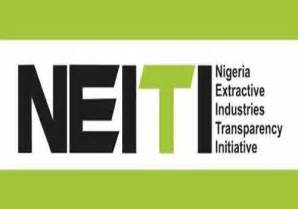NNPC Under-remitted N77bn, Deducted Another N297bn From Crude Sale In 2017 – Report
By
Posted on

Nigeria produced a total of 692 million barrels of oil in 2017, a report on a pilot study that focuses exclusively on the sale of Nigeria’s share of crude oil and gas produced in 2017, released in Abuja by the Nigeria Extractive Industries Transparency Initiative (NEITI) has shown.
Out of this volume, the federations share was 240.9 million barrels representing 35percent of the total crude oil production for the year 2017.
A trend analysis for the year under review shows that the 2017 federation share was 4percent higher than the 231.6 million barrels in the same category for 2016.
An analysis of the report shows that total revenue from sale of federation share of oil and gas for 2017 was $14.5 billion—$13.18 billion or 90.8percent from crude oil and $1.32 billion or 9.1percent from gas.
A further analysis shows that the NNPC deducted N297 billion from earnings from the Domestic Crude Allocation as costs and losses. According to the corporation it spent N141.6 billion for under-recovery (otherwise known as subsidy) on petroleum products,
N25 billion for crude and product losses and another N130.4 billion for pipeline repairs and maintenance.
Furthermore, the report showed that the sum of N77.92 billion was under-remitted by NNPC to the Federation Account from Domestic Crude Allocation in 2017.
While acknowledging the under-remittance, the NNPC stated that there is an ongoing reconciliation to net off the N77.92 billion from “the established Federation indebtedness to the Corporation of N797billion arising arising from KPMG Forensic audit of the Corporation at the instance of the Federation.”
The 136-page report also contains information including breakdown and analysis of oil and gas production in 2017. It also disaggregated the federation share of production by types, allocation, uses, details of the revenues derived from the sales, the receiving accounts, and allocation of the revenues.
While releasing the Report titled “pilot study on commodity trading for 2017” the Executive Secretary of NEITI, Mr. Waziri Adio stated that the special report was undertaken in furtherance of the recent decision of the global Extractive Industries Transparency Initiative (EITI) to add commodity trading transparency to its scope of coverage through stand-alone and in-depth reports.
The objective, Mr. Adio stressed, was to ensure adequate returns to governments, increasing competition and efficiency in commodity trading, and ensuring greater public scrutiny of the resultant revenues.
“Resource-rich countries receive shares of minerals produced in their territories as equity shares or as in-kind payments, and these minerals are usually sold directly or indirectly to commodity traders through state-owned enterprises. However, the process and details of these sales are mostly shrouded in secrecy, even when more than half of the revenues from the extractive sector come from these sales.
“This is why the EITI resolved to beam more search-light on commodity trading. Nigeria is one of the five EITI-implementing countries selected to pilot this enhanced focus,” Adio explained.
The pilot report also showed that the federation crude went to 29 destinations in 2017 with the top five being India with 41.3 million barrels (17.12%); USA, 30.6 million (12.72%); local refineries, 26.5 million barrels (10.98%); Netherlands, 22.9 million barrels (9.5%); and Spain, 21 million barrels (8.83%).
The study however did not cover other revenue streams from the sector such as Petroleum Profit Tax (PPT), royalties, signature bonuses, dividends, penalties and fees, statutory payments etc. According to NEITI, other details on production and processes will be in the 2017 NEITI oil and gas industry report which is scheduled for release soon.
Meanwhile, apart from the pilot studies, the EITI has convened a global working group on commodity trading transparency, comprising representatives of trading companies, governments, state-owned enterprises, academics, donors and civil society groups.
Poll
Will private management of Nigeria's refineries be a success story?





























